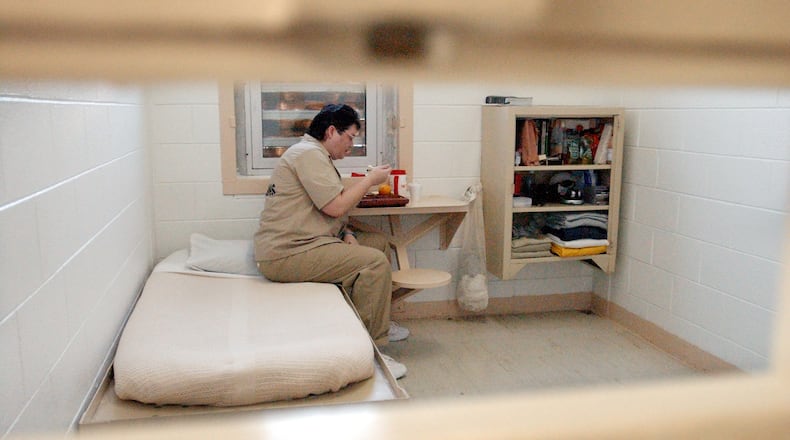Death row inmate Kelly Gissendaner’s lawyers are accusing the Department of Corrections of misleading the courts, including the U.S. Supreme Court, and manipulating tests of lethal injection drugs to support their contention that compounded pentobarbital is safe to carry out executions.
Gissendaner’s lawyers made the allegations in a response filed in her federal lawsuit that says DOC subjected her to cruel and unusual punishment when it called off then rescheduled and called off again her execution that was to have been on March 2. DOC ultimately stopped Gissendaner’s execution for her husband’s murder because there was a problem with the lethal injection drug, pentobarbital made specifically for her execution.
The state had that batch analyzed and then did tests on different batches of pentobarbital to find out the problem. Each time, DOC said storing the drugs in cold temperatures caused the pentobarbital to appear cloudy and to clump even though the state could not recreate what had happened the night of March 2.
Gissendaner was scheduled to be executed for the 1997 murder of her husband. A Gwinnett County jury said she should die for recruiting her boyfriend, Gregory Owen, to carry out the murder. Owen pleaded guilty and was sentenced to life in prison with the possibility of parole after he has served 25 years.
The hour of her execution had long passed when it was called off in March.
The state promised the U.S. Supreme Court and the federal court in Atlanta it would turn over the results of its self-investigation,” the lawyers wrote.
But then, Gissendaner’s lawyers said, DOC tried to hide some of the results from them and from the court.
Gissendaner’s lawyers want the state to be ordered to turn over all information on its lethal injection drugs so they can do their own investigation.
Georgia — as well as other death penalty states — make that information a “state secret” that can’t even be released to the judges. Courts have upheld these laws, agreeing that they are necessary for states to acquire drugs for executions from companies and pharmacies that otherwise would not provide them out of fear of public pressure and criticism.
An unidentified pharmacist made the drugs for Gissendaner’s execution set for March 2. That same pharmacist examined the drugs the day after the execution was stopped and suggested that cold storage was to blame for the cloudiness and clumping.
A University of Georgia pharmacy professor who looked at the findings for a follow up examination of additional pentobarbital made by the pharmacist said clumping could have been caused by storing the drug in cold temperatures or improperly mixing it.
DOC promised in court filings it would do more testing that would confirm its theory that Gissendaner’s execution drugs clumped because it got too cold.
About the Author
The Latest
Featured


